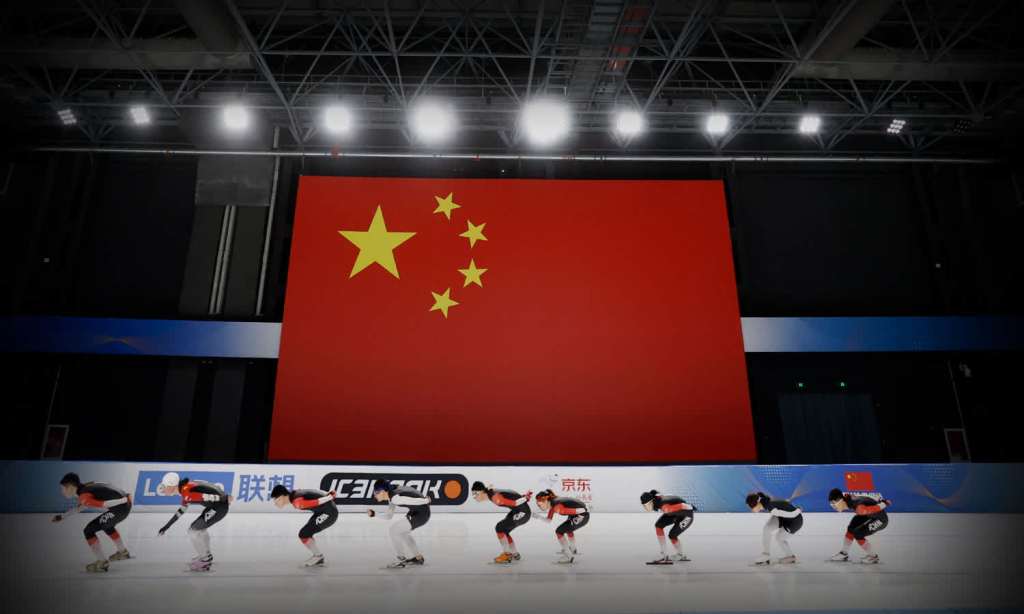It’s been a long time coming but we now have confirmation: Australia will not send government representatives to the Winter Olympics in China, effectively boycotting the event. Although a final decision on a full diplomatic boycott is set to be made in the coming days, Australia has said it will send no officials or politicians to China for the games.
The move comes after the US announced on Tuesday that they would be undertaking a full diplomatic boycott of the event and several other countries, including Canada and the UK, also considering not attending.
The Winter Olympics are set to begin in Beijing in February but there have long been calls for boycotting of the event since it was announced that China would play host.
The decision, announced by Prime Minister Scott Morrison this morning, Wednesday, December 8, is a huge diplomatic call and could trigger a raft of other nations to also refuse to attend.
China’s foreign ministry spokesperson Zhao Lijian has said that the decision by the US to pull out of the games is a “pretentious act” and that “firm coutnermeasures” would be brought against the country for its decision.
“Without being invited, American politicians keep hyping the so-called diplomatic boycott of the Beijing Winter Olympics, which is purely wishful thinking and grandstanding,” he said.
Morrison has said that his decision should come as “no surprise” and that he’s doing it “because it’s in Australia’s national interest.”
The Australian Olympic Comittee has backed the move, with AOC chief executive Matt Carroll saying: “Getting the athletes to Beijing safely, competing safely and bringing them home safely remains our greatest challenge.”
So, why has Australia decided to follow the US in picking yet another fight with our largest trading partner in spite of the risk of severe sanctions? Here’s what you need to know about the Australian boycott of the 2022 Beijing Winter Olympics.
Why Is Australia Boycotting the Winter Olympics?
There are three major reasons why the Australian government has made the decision but it comes against a backdrop of tensions in the Indo-Pacific region and should predominantly be seen as Australia trying to stand up to China.
“We have always been open to meet with the Chinese government to talk about their concerns, whether it’s their concerns with our foreign interference legislation or foreign investment rules where Australia takes a strong stand, standing up for Australia’s interest,” Morrison said.
Australia is no doubt trying to burnish its reputation in the Pacific as a country not to be underestimated and one that will step in where it sees China overreaching, as it did in Solomon Islands recently.
However, the main points of contention at the moment that incited the boycott are Chinese domestic issues, predominantly the Chinese treatment of Uyghur Muslims in the province of Xinjiang in the far west of the country.
Human rights groups have long asserted that China is effectively conducting ethnic cleansing in the region, forcing Uygurs into ‘reeducation camps,’ unpaid labour, and the sterilisation of Uygur women. The UN estimates that more than one million Uygur and Turkic Muslims have been detained in the region for several years.
China, of course, denies the claims, saying that the Uygur population contains radical muslim extremists who need to be controlled but Uygur groups outside of China have long been calling for greater diplomatic pressure on the country.
Morrison noted the response from China to Australia’s recent move to aquire nuclear-powered submarines was another notable reason for refusing to attend the games. While no concrete measures were taken in response, China did lash out at Australia, claiming the proliferation of nuclear technology was in contravention of international treaties. Morrison is keen to not be seen to bow to Chinese pressure over military and diplomatic issues.
Finally, you have the recent disappearance of the Chinese tennis player, Peng Shuai, who accused a senior politician of sexual assault on the social media site Weibo. The incredibly popular tennis star was silenced in the country just hours later, with her accounts and posts blocked as well as a scraping of any reference to her before 2020 from the Chinese internet. This has lead to speculation that she might have disappeared, although it’s not entirely clear as to whether she is safe and well and taking an enforced break from social media. Either way, the Women’s Tennis Association remain concerned for her safety.
Morrison clarified that athletes will still be going to the Winter Olympics and that there would be “no grounds” for a total boycott of the event.
Lijian has since said that “no one would care” if Australian politicians didn’t attend the games and highlighted the spirit of political neutrality that the Games are supposed to be about.
“We have said on multiple occasions that the Beijing Winter Olympics is a grand gathering of global winter sports athletes and fans, rather than a platform for certain politicians’ political stunts,” he said.
Read more stories from The Latch and subscribe to our email newsletter.







